Tale of Wuxia is a beautiful mess (also, requesting opinions on the English translation)
By Francium34 7 Comments
tldr in bold!
Tale of Wuxia is a modern remake of a beautifully bizarre Chinese RPG, somewhat similar to Persona in structure, wrapped in full-blown wuxia/martial arts theme. The recent remake is (mostly tolerably?) translated to English, and can be found on Steam here, for $17, with an 84% positive rating among English reviews. If you have the money to spare, stop reading here and just go try the game. I can’t guarantee you’ll like it, but the game is such a strange, fascinating hodgepodge of ideas that I highly recommend seeing it for yourself. (This was my first time on the remaster, 4th overall, steam reports 25 hours to get to one of the standard good endings. In Chinese though, so I can't vouch for the translation)
1. Pedigree:
Heluo Studios created Tale of Jin Yong in 1996, successfully mixing 14 novels from Jin Yong, the JRR Tolkien of wuxia novels, into a free-roaming open world RPG. Most notably, recruitment of characters and learning various wushu moves were tied to stat-checks such as morality and IQ, a feature that will come back in Tale of Wuxia with much heavier presence.
What didn’t return in the 2001 game, though, was the Jin Yong IP. In response, the studio created a world that covers nearly every imaginable wuxia motif without directly referencing any authors, similar to Dragon Age’s creation after Bioware lost the DnD license. Yes, there’s a drunkard that will teach you drunken mastery after enough drinks. Yes, you can consult a traveling journalist on your martial arts power ranking in the world. You name your favorite bit from wuxia novels or movies, it’s probably in the game. The remake adds even more events and quests, including the option to trade you manhood for ultimate power (it… happens several times in Jin Yong’s novels… it's about switching from yang to yin...) The end product is the most complete wuxia simulator one can dream for.
Heluo then went on to make Tale of Three Kingdoms, and also a prequel of this, without the sim layer, and both to moderate success, but that's another story for another time (actually, probably not, since I don't feel much for either game)
2. Drunken mastery:
If Persona 5 (which I recently beat, and lead me to dig up this similar game again) is like its protagonist, stylish and suave, Tale of Wuxia would the stumbling drunken master. It’s rough, it’s strange, but it also mostly works effectively. I still vividly remember my first time bumbling through this game. On multiple occasions, I was shocked watching the game pivot mechanically. After getting the worst ending possible and then consulting guides, I found I had missed major events, characters, and even flat out systems in my first blind playthrough. Frankly my next paragraph is ruining some of the surprise, but here goes.
At the start of the game, you have hours to explore a town like any standard RPG. Complete over a dozen side quests, earn money through tasks such as fishing and mining, or just go around buying different items. Then story bits happen and you get dumped into a time management sim layer filled with minigames, and occasional breaks to other towns and cities. And then in a final turn, the last fifth of the game escalates into an open world where all previous locations and more are accessible with new quests, and characters that like you enough thus far can be recruited to the team. Even the art style is all over the place. Take a look at these screenshots, inexplicably from the same game!
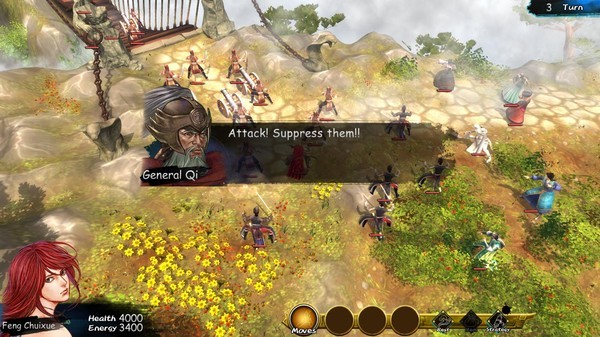
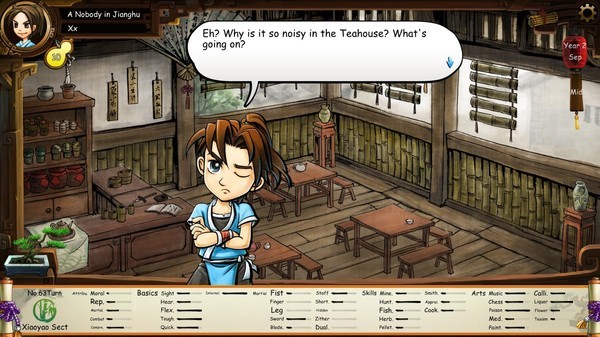
You should notice the dozens of different stats listed on the sim layer UI. On one hand the freedom to choose what to master is exhilarating. Maxing out “music” and attacking enemies with your chi as you play the zither/qin is a viable build (fans have called for nerfs, ha). “Flexibility” (important stat for soft arts like Tai Chi) and “toughness” (Shao Lin arts) are incompatible, as you lose points in one when practicing the other. The game is also filled with stat-check events, e.g. high “eye” stat gives you the option to cheat in a test, and certain items are only obtainable with high “quickness” in order to scale cliffs. On the other hand, the game is relentlessly harsh, with little hint or guidance, and very strict event triggers/cutoffs. Time has to be split between actually working out, earning money, or wandering around socializing. It is equally easy to fall too much behind in training and get wiped in must-win fights in the second half of the game, or never going out and missing important story context or even branching points. If you thought Persona 5 was unforgiving, hoo boy. Mathematically, it is possible to max out all stats (there’s an achievement and super useful bonus perk) and maintain max affinity with most characters, but not without rigid adherence to guides and save-scumming.
Again somewhat comparable to Persona’s in-class quizzes, the game is also a huge data dump of Chinese culture, not just the wuxia parts, but also about making tea, fishing, and the history of various arts. I enjoyed reading all those bits (and a refresher all these years later), and even had a friend in college who memorized all the facts after beating the game no less than 10 times. Reading long lines of text isn’t for everyone though, and more concerning are some of the reviews complaining about English translations basically giving up at parts, which is a huge shame. Learning new skills and maxing out certain character affinity will require regurgitation of some of these facts, so save often, or google for a guide (not sure if English ones exist...)
3. New generation:
With all that said about difficulty, the remake is actually much more lenient. Some parts of the story that I missed completely are now mandatory, more than one action per turn can now be taken in the sim layer, and when all else fails an “easy” difficulty is available. I am very conflicted on these changes. The game is much easier to recommend and pick up, but that previous ruthlessness was strangely respectable. First time through I wasn’t careful watching this one particular beggar’s subtle motion, and ended up not seeing an entire government conspiracy (Ming dynasty) subtext of the whole game.
More events, more romance options, and more martial arts moves were added in the remake, as well as endings (although, the English version didn’t seem to get the final content update). Most importantly, fleshing out of character relationships with your mentor and fellow students (the term is closer to “brothers” in Chinese, so it’s very fitting) is a big step up from the original game.
With 15 extra years under my belt and slightly better ability to critique, I now see the narrative as too safe and generic. There aren’t really any life-changing dialogue or insights to be gleaned here, although some clichés still work well, as one of the monks’ Buddhist incantations had me nodding (no idea how well English translations handle those). Of course, for a wuxia simulator in a market devoid of them, generic is totally fine. In terms of writing in romance options, things are handled mostly tastefully, though again too cliched or mechanical. One might criticize the romance options feel like “trophies”, as there is an achievement and bonus art work for romancing them all. But at least there is no fan service to worry about – the chibi characters don’t get scandalous in any way.
As a game, the UI is somehow worse than the original, but tolerable. The thing runs mostly fine in Unity (had a few freezes in combat, that were curiously unfrozen by alt-tab??), although I prefer the original 2D look. Combat is now hex-based, with a lot more options and systems to work with. It is mostly an upgrade, aside from the fact that the devs kept trying to do storytelling in tactical combat, which just throws off the “tactics” part. I cannot stress this enough: plan out combat as conservatively as possible, because new enemies might jump in without warning, or the boss will (note the use of “will”, not “might”) re-power up at 0 hp, maybe even several times.
Overall I would recommend this remake version, especially when the original's minigames run too fast on modern computers. I am planning another playthrough to see some of the added sequences/endings as well (why am I starting over, you ask, well one of the major branches gets cut off after like 10 turns on the sim layer! I love/hate this game!)
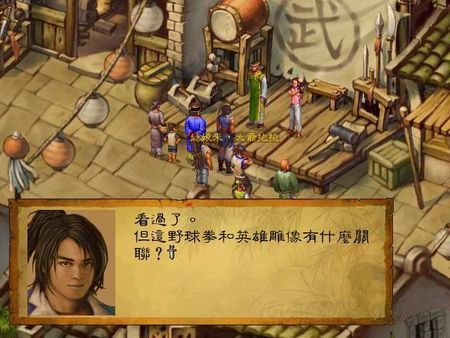
4. Lost in translation (rambling, feel free to skip):
Translation is always incredibly tough work. Accuracy, economy, aesthetics. Heck, even Jin Yong’s renowned novels only had a couple out of the 14 translated to English. A recent scholarly effort to translate another trilogy (see article here) gave sneak peeks to translations of a few martial arts moves and names. I kind of hate them all :D, not that I have better ideas though. The rhythm, where these terms are mainly a very catchy 3 to 5 syllables, is always going to be lost, unfortunately.
A whole bunch of Taoist or Buddhist concepts are wrapped in casual conversation and wuxia nomenclature, and is even more difficult to convey, especially for volunteering fans (a whole page in the credits thanking them) in the case of this game. The latest content patch missing from the English version had quite a bit of text, and focused more on abstract concepts of justice, peace, etc, which I speculate to be part of the reason Heluo Studios called off localization work. (Heluo also didn't bother putting this on sale in the steam summer sale, so this might be the end of support.)
I only booted up the game in English for the first 10 minutes, and the translation seemed fine. The most glaring “problem” is the way relationships are called out in dialogue. In line with ideas from Confucius that every social order is like family, a teacher is called with word “father” incorporated. Same for students under the same teachers, they are “brothers/sisters”, with distinction of who is older who is younger. Even “uncles”, “grandfathers”, etc etc. (still works this way for PhDs and labs) And then things get more complicated when referring to a separate school/family. The way out is either translating more literally, or going the “senpai”, “kun”, “chan” route and just use the Chinese terms enough to be more or less accepted. Same with terms like "Jianghu", because nobody wants to literally translate it to "rivers and lakes", or explain how the term comes from Zhuangzi.
Very curious to see how many here have tried the game, and how you liked it (importantly, was the English tolerable for you, otherwise I need to stop recommending the game...)

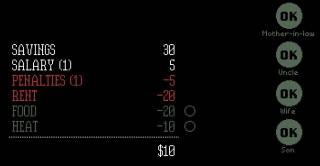
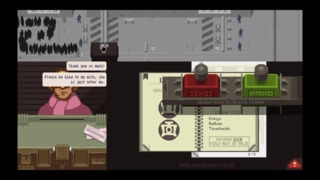
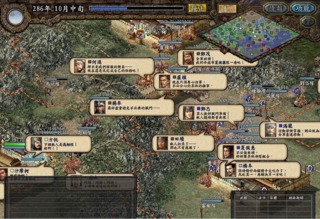
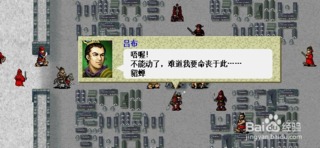
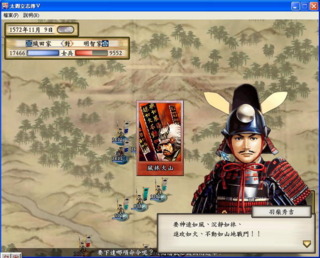
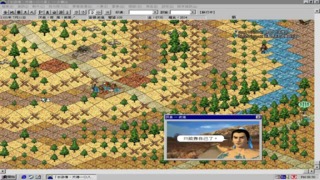
Log in to comment